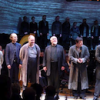
“I first fell in love with classical music and opera in high school,” said John Mangum when, on July 31, he was named general director, president, and CEO of Lyric Opera of Chicago. “The art form has been a focus of both my personal and professional life ever since.”
In San Francisco, 30 miles from Danville, where Mangum was born and raised, there are many stories about those high school days of the man, now 49 and soon to lead the country’s third-largest opera company — with its $81 million budget behind the Metropolitan Opera’s $327 million and San Francisco Opera’s $92 million.
More about those Bay Area student days below, but first, Mangum’s career:
Mangum has a doctorate in history with a concentration in musicology from the University of California, Los Angeles, and his dissertation was about how the spread of Italian opera in 18th-century Berlin reflected the social and political order. He has since gone on to become one of the country’s most experienced performing arts executives. He has held positions with the New York Philharmonic, the San Francisco Symphony, and the Los Angeles Philharmonic, among others, and he is now completing his tenure as executive director and CEO of the Houston Symphony.
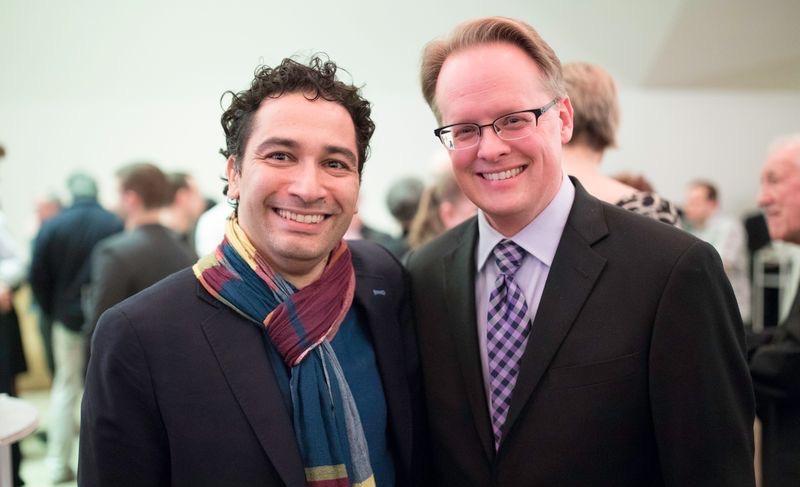
In Houston, which Mangum will leave in the fall to take up the job in Chicago, he has increased the orchestra’s endowment by 50 percent, secured major capital gifts to fund the renovation of Jones Hall (where the orchestra performs), and bolstered the orchestra’s education and community engagement program. The Houston Symphony’s Student Concert Series is now the largest school program of any major American orchestra.
Mangum also led the search for a new music director in Houston following the conclusion of Andrés Orozco-Estrada’s tenure, and the orchestra announced Juraj Valčuha’s appointment to the position in 2021. Among the many concert operas, or semistaged performances, during Mangum’s time there were Richard Strauss’s Salome, Beethoven’s Fidelio, and Igor Stravinsky’s Oedipus rex.
As artistic administrator of the NY Phil from 2009 to 2011, Mangum was involved with productions of György Ligeti’s Le Grand Macabre and Leoš Janáček’s The Cunning Little Vixen, “Philharmonic 360” at Park Avenue Armory, and “Sondheim: The 80th Birthday Concert” and Company, both televised by PBS’s Great Performances.
At the SF Symphony, Mangum was director of artistic planning from 2011 to 2014, assisting then-Music Director Michael Tilson Thomas, who told SF Classical Voice in response to the news of the Chicago appointment:
“John Mangum loves and really knows classical music. All artists feel very comfortable speaking and planning with him. This is because, in addition to his great knowledge, we feel the respect and affection he has for all of us.
“Although recently he has been much devoted to the symphonic world, he has profound understanding and appreciation of singers and their special needs. This promises to be an inspiring new era for Lyric Opera of Chicago.”
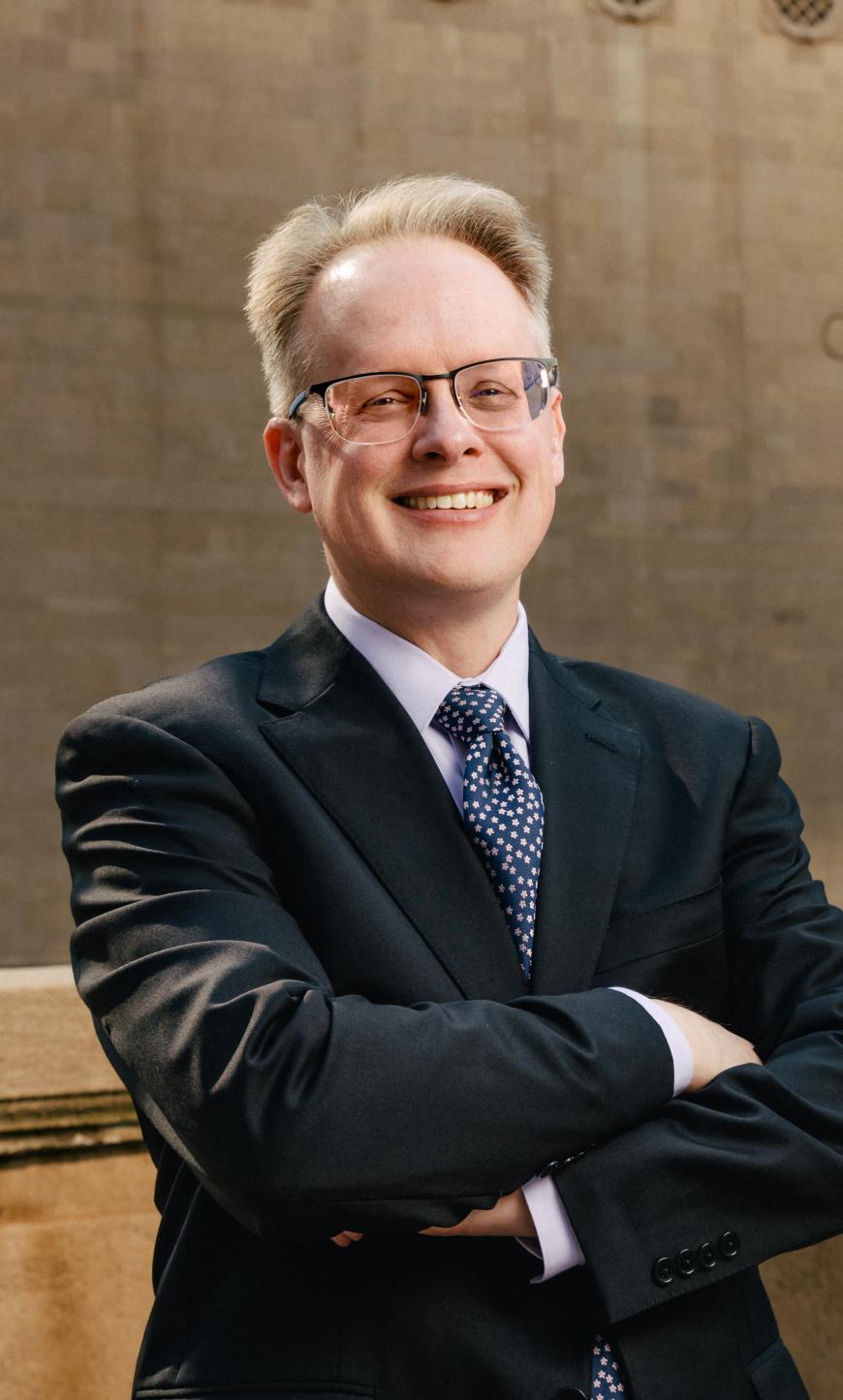
Andrew Dubowski, the SF Symphony’s senior director of operations, told SFCV:
“John Mangum was a terrific colleague during his time with the San Francisco Symphony and a great partner to and champion of MTT. He attended so many events and was really dedicated to the organization in a meaningful way. We were all sad to see him go when he left for his new role with the Philharmonic Society of Orange County [where Mangum was president and artistic director from 2014 to 2018], but it’s been fantastic to see how his career has progressed. Lyric Opera of Chicago is lucky to have him as their new leader.”
During his time with the SF Symphony, Mangum worked on creating and implementing the centennial season in 2011–2012, the annual thematic summer festivals, artist and composer residencies, the first-ever complete concert performances of West Side Story (recorded for commercial release), and productions of Fidelio, Benjamin Britten’s Peter Grimes, Béla Bartók’s Bluebeard’s Castle, and John Cage’s Song Books, the last at Carnegie Hall.
Jim Utz, who has been in the SF Symphony administration for a quarter century, said:
“During John’s time as director of artistic planning, he was beloved by his staff, and he was always able to inspire us to go the extra mile and to set our goals even higher than we thought possible. His casting of our semistaged productions would be the envy of any opera organization on the international stage.
“His extensive, encyclopedic knowledge of classical music and opera made for many great conversations with artists and staff backstage. I cannot wait to see what he brings to Chicago. They are in for an exciting time with the skills he brings with him. He’s also what you would call a mensch.”
Another of Mangum’s colleagues at the SF Symphony was Oliver Theil, back then senior director of communications (he later served as head of digital innovation until 2022). Theil’s response to Mangum’s appointment:
“Lyric Opera of Chicago is getting an inspiring and experienced arts leader. At the SF Symphony, John’s vision, his vocal casting, and the relationships he built with singers were some of his great strengths, besides being a supportive and terrific colleague.
“The powerful and inventive staged productions that John brought to life with Michael Tilson Thomas were always the highlights of every season and, I believe, some of the artistic high points of his tenure in San Francisco.”
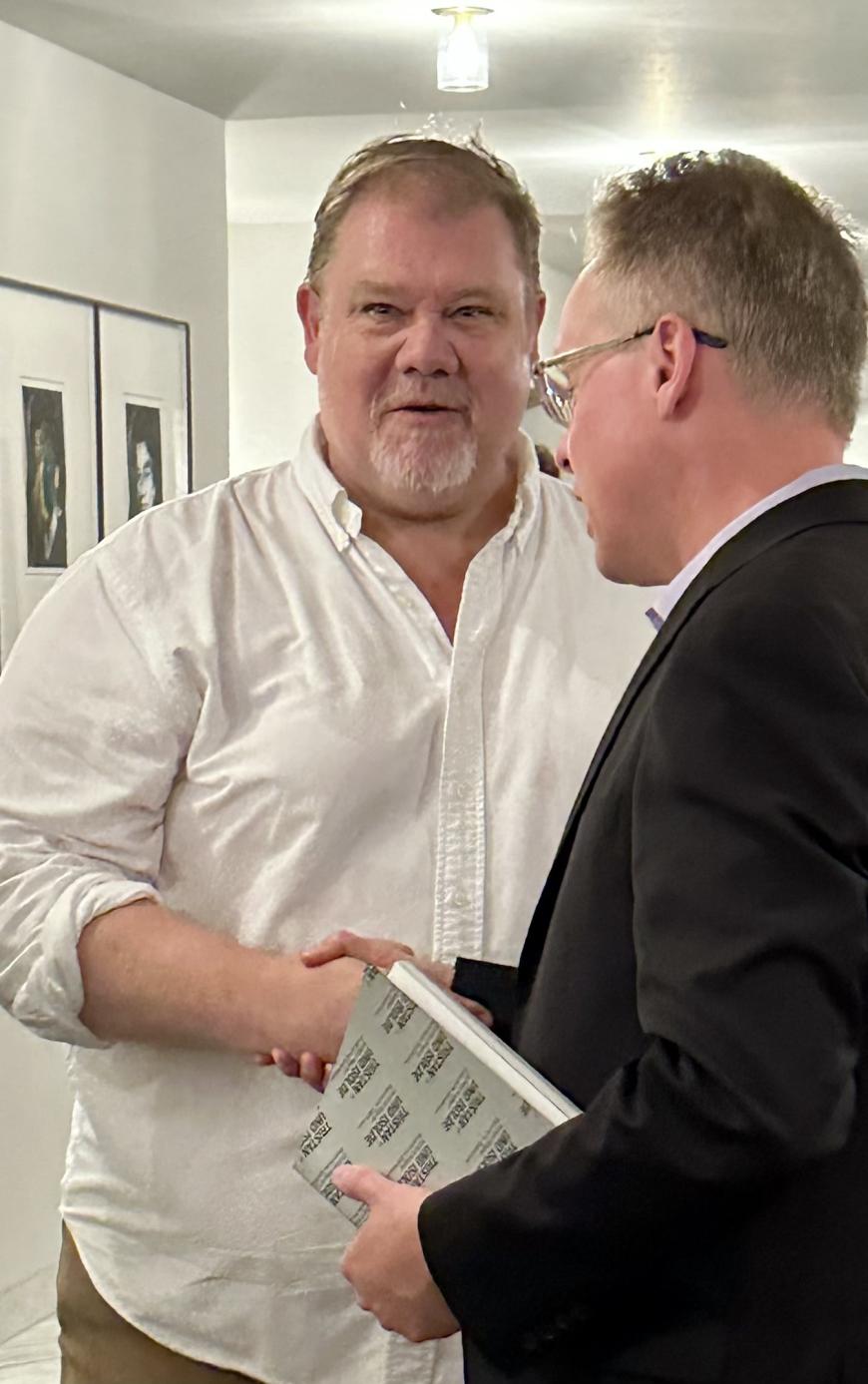
Richard Lonsdorf, executive director of San Francisco’s New Century Chamber Orchestra, remembers his SF Symphony days with Mangum:
“I am so thrilled by this news. John gave me my first job at the NY Phil and hired me again for the SF Symphony. He was the best boss and mentor I’ve ever had. He is incredibly clever, musical, and amiable, but he’s always been able to make hard decisions and work effectively at these gigantic musical institutions. I think Lyric Opera of Chicago is so lucky to have him.
“John has always had an excellent ear for vocalists and vocal repertoire, and I think probably the highlight of his [SF Symphony] tenure was the wonderful production of Peter Grimes with MTT and [tenor] Stuart Skelton.
“John’s work behind the scenes to secure that entire cast and navigate the production to the finish line was so critical to its success. I always joke that when the work of the artistic planning team is done well, it’s completely invisible. And John is incredible at that deft touch; he knows how to take the vision of an artist and bring it to life. Lyric Opera of Chicago is in great hands.”
Mangum too singles out Peter Grimes as a highlight of his SF Symphony tenure:
“I assembled the cast — of course, in close consultation with Michael — with support and suggestions from other members of the artistic team. I also came up with proposals for where to put the chorus for the offstage bits and how to divide and deploy them when smaller groups were called for, working that out with Michael and [then-SF Symphony Chorus Director] Ragnar [Bohlin].
“More generally, I oversaw the aspects of the production, the overall budget, and how to make everything work within that.
“I remember [stage director] James [Darrah] had a brilliant idea to make a runway position thrust into the orchestra seats for Stuart to do Grimes’s big mad scene at the end, and that required some real problem-solving to bring to reality. But the effect was overwhelming, with [Skelton] amid the audience at this raw moment. It was unforgettable.”
Another musical memory from Lonsdorf: “John is just a super fun guy to have around. We were in the middle of an artistic planning staff meeting once, and for a long-forgotten reason, John burst into the opening lines of the fake Planet of the Apes musical from a classic episode of The Simpsons. I jumped in, and we performed the entire scene for our bewildered colleagues.”
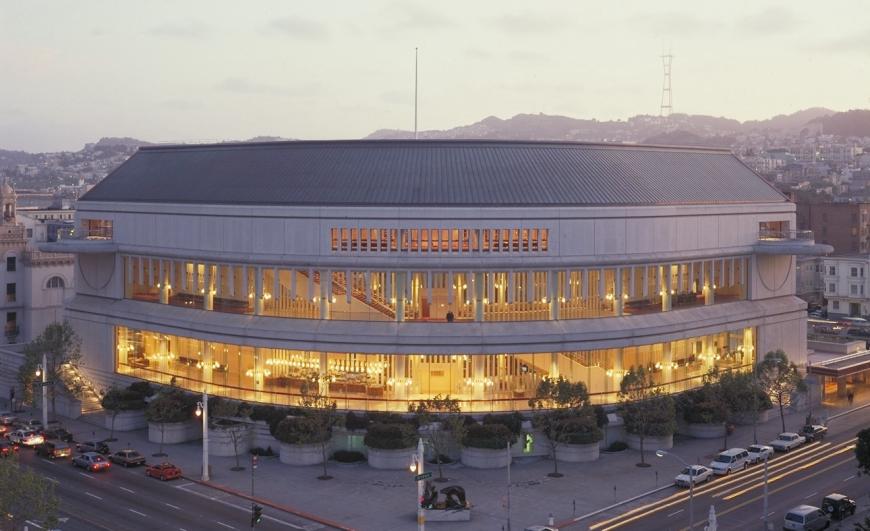
Now, back to those early days between Danville and San Francisco. Mangum told SFCV:
“Though orchestras have been the focus of my career to date, opera has always been an essential part of my life. In high school, I was a super [onstage extra] in SF Opera’s Elektra, and my passion for the art form has only grown from that incredible early experience.”
Even before that, Mangum said, his introduction to classical music “was right here, in Davies Symphony Hall, Roger Norrington conducting Beethoven’s Eighth and Ninth Symphonies.” Then, the youngster from Danville first fully experienced the passion he still espouses today.
The teenage Mangum also had a “transporting experience” at the San Francisco Choral Society’s 1991 performance of Hector Berlioz’s monster Requiem in the San Francisco Civic Auditorium, getting hooked on the composer for life.
As Mangum told SFCV for a previous article, “After the concert, I went on a [Berlioz] buying spree at Tower Records in Berkeley on my way home, getting Claudio Abbado’s recording of the Te Deum, Colin Davis’s first London Symphony Orchestra Roméo et Juliette, a disc with Jessye Norman singing La mort de Cléopâtre, Kiri te Kanawa singing Les nuits d’été.”
More than three decades after the fact, this recollection testifies to the importance of vocal music for the soon-to-be Lyric Opera of Chicago general director.
The interest in Berlioz’s Te Deum paid dividends in 2013, when Mangum arranged for a production in Davies, which he discussed with SFCV ahead of the performances:
“We literally had to make dozens of decisions once we decided we wanted to program the Te Deum. We needed another piece for the concerts, and [Francis] Poulenc’s Stabat Mater seemed like a natural.
“Then, we had to figure out how to realize the Te Deum in performance. Who would our soloist be? How large would the choruses be? How would they be arranged? How many brass and percussion players would we use? How would we fit the organ [console] onstage — it’s such an important part — and still have room for all of the strings we needed?
“How would we schedule the chorus rehearsals so the boys could work with the adults, and then both work with the orchestra? We’re happy with how we’ve answered all of these questions, and we think that this will be a stunning week, a unique chance to hear one of the truly massive pieces of the choral-orchestral repertoire performed by all of these assembled forces.”
Reviews, such as this one in SFCV, more than bore out Mangum’s expectations.




